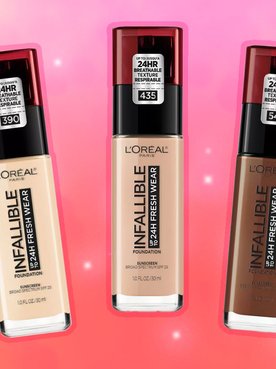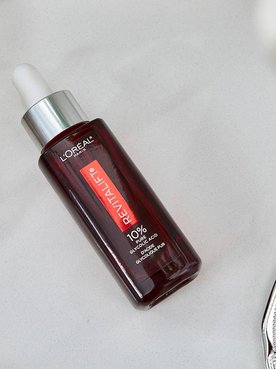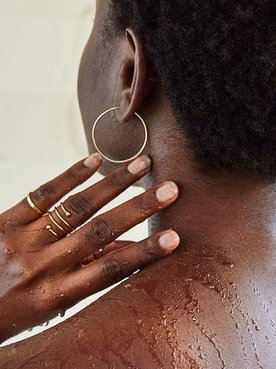One of the most popular skin care ingredients also happens to be one of the oldest. Witch hazel — and its wonders — is one of the beauty world’s age-old secrets. Whether it was through a facial toner or an everyday cleanser, you’ve probably applied witch hazel to some place on your face. If you have skin concerns or you’re just curious about how witch hazel can help your complexion, keep reading, as we’re sharing a few witch hazel uses and benefits you’ll want to know about.
What Is Witch Hazel?
According to the Cleveland Clinic, witch hazel is an astringent derived from the hamamelis virginiana plant. It’s known for its anti-inflammatory properties which can be beneficial in soothing itching, redness, and inflammation associated with eczema. In addition, it can also calm sensitive skin, according to the National Center for Biotechnology Information (NCBI). Rich in antioxidants, witch hazel can help fight pimple-inducing bacteria, soak up pore-clogging oil and treat existing breakouts without over-drying the skin.
The Benefits of Witch Hazel
In addition to the aforementioned, there are a few other noteworthy witch hazel benefits that have everyone talking about this skin care ingredient.
Cleansing
Witch hazel was found to be a breakout banishing powerhouse thanks to its pore-tightening and oil-zapping abilities. Witch hazel has been used for skin conditions, such as acne, for a long time thanks to its astringent and antiseptic properties, says a study from the NCBI. It can come in a variety of products that allow you to use witch hazel for your face, including toners and wipes.
Soothing
According to the NCBI, the plant that witch hazel comes from provides a cooling effect to the skin. As mentioned above, research has shown witch hazel can be beneficial in reducing itching, redness, and scaling in those with moderate to severe atopic eczema. Witch hazel water also possesses anti-inflammatory properties, allowing it to help soothe sensitive skin.
Sun Damage
Witch hazel bark possesses a high concentration of oligomeric tannins, which serve as potent antioxidants that help to protect the skin from free radical damage. Per the NCBI, studies have shown that witch hazel can be beneficial in helping reduce UV-induced redness and help reduce irritation caused by sunburn.
How To Incorporate Witch Hazel Into Your Skin Care Routine
The most common skin care products formulated with witch hazel are cleansers, but it can also be found in certain creams, serums, and even setting sprays. Below, you'll find a few steps for incorporating this ingredient into your existing skin care routine.
Step 1. Cleanse Your Skin
Start your routine by washing with a facial cleanser. For a no-fuss option, reach for micellar water, like the L’Oréal Paris Micellar Cleansing Water Complete Cleanser Waterproof - All Skin Types, which doesn’t have to be rinsed off with water. Saturate a cotton pad and gently glide it over your skin to cleanse.
Step 2. Use A Witch Hazel Toner
Then wet a cotton ball or pad with a witch hazel toner and glide it over your face the same way you did your micellar water.
Step 3. Apply A Tinted Moisturizer
Lock in hydration and get a start on your makeup routine by using a tinted moisturizer — bonus points if it’s infused with witch hazel like the L’Oréal Paris Skin Paradise Water-Based Tinted Moisturizer. This non-greasy, light-as-air tinted moisturizer is formulated with witch hazel and SPF. It provides enough coverage to blur imperfections and even out skin tone while leaving the skin with a natural-looking finish.
Next: What Does Caffeine Do For Your Skin?
Written by: Lauren Paige Richeson, Photo Credit: Chaunte Vaughn
.jpg?cx=0.25&cy=0.31&cw=2000&ch=815&hash=C77CF560C156B16EB23C8BFBB6FEAEC3)




